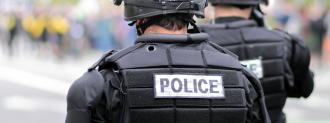Using publicly available data, the New York Times has broken down how police spend their time during a typical shift.
Following the death of George Floyd and subsequent police brutality protests, many citizens have begun to rethink the role of law enforcement and what police should be doing. This information could help cities decide where “unbundling the police” might make sense.
How Police Spend Their Time
To determine how police spend their time, the NYT analyzed “calls to service” data from ten U.S. cities.
This data included tripped burglar alarms, calls from citizens to 911 or non-emergency police lines, and radio calls from officers themselves — basically any call that resulted in the dispatching of police.
The data showed that only 1% of all calls to the ten agencies in 2020 were for serious violent crimes (homicides, robberies, rapes, or aggravated assaults).
The NYT acknowledged that this is far from a perfect way to determine how police spend their time, as it doesn’t reveal how long officers spend on each call.
To dig a little deeper into that, the newspaper looked into calls with known start and end times in three places: New Orleans, Sacramento, and Montgomery County, MD.
Again, the data suggests that officers spend relatively little time responding to major violent crimes: 4%, 3.7% and 4.1% in the three locations, respectively.
So, if police officers are only spending a small portion of their time responding to serious violent crimes, what are they doing?
In the three locations with start and end times available, police spent an average of 50% of their time responding to either noncriminal calls (35%) or traffic incidents (15%).
This raises the question: are armed officers really the best people to be responding to those types of calls? Proponents of “unbundling the police” would argue that they aren’t.
Unbundling the Police
Right now, the U.S. relies on armed law enforcement officers to handle everything from traffic stops to murder investigations.
The basic idea behind “unbundling the police” is that the government officials should narrow the scope of officers’ duties. They should then pivot some police funding to groups better suited to handle tasks that used to fall under law enforcement’s purview.
Two areas that regularly come up in “unbundling the police” conversations happen to be the same ones the NYT found take up a large portion of officers’ days: traffic incidents and noncriminal calls.
“Many of the police homicides, such as the killing of Philando Castile happened at ordinary traffic stops,” economist Alex Tabarrock wrote in a Marginal Revolution blog post focused on unbundling. “But why do we need armed men (mostly) to issue a traffic citation?”
“The responsibility for handing out speeding tickets and citations should be handled by an unarmed agency,” he suggested. “Put the safety patrol in bright yellow cars and have them carry a bit of extra gasoline and jumper cables to help stranded motorists as part of their job — make road safety nice.”
Noncriminal calls, meanwhile, are another target of “unbundling the police” efforts.
Rather than sending armed officers to deal with nonviolent domestic disturbances, neighbor disputes, or issues involving the homeless or mentally ill, we should be sending social workers or people trained in crisis intervention, some argue.
There’s even a precedent for this type of response: for 30 years, teams of medics and unarmed crisis workers have been effectively handling public safety calls for police in Eugene, Oregon, through the CAHOOTS (Crisis Assistance Helping Out On The Street) nonprofit.
Some cities are now starting to follow Eugene’s lead.
On June 11, San Francisco’s mayor announced a police reform plan that would take noncriminal calls off law enforcement’s plate, and Portland is rerouting $5 million from its police bureau’s budget to a new CAHOOTS-inspired program.
Knowing how police spend their time could help other cities determine how to make their own changes, pivoting resources away from armed officers and toward their replacements — leaving police free to focus solely on those tasks that they are best equipped to handle.
We’d love to hear from you! If you have a comment about this article or if you have a tip for a future Freethink story, please email us at [email protected].






